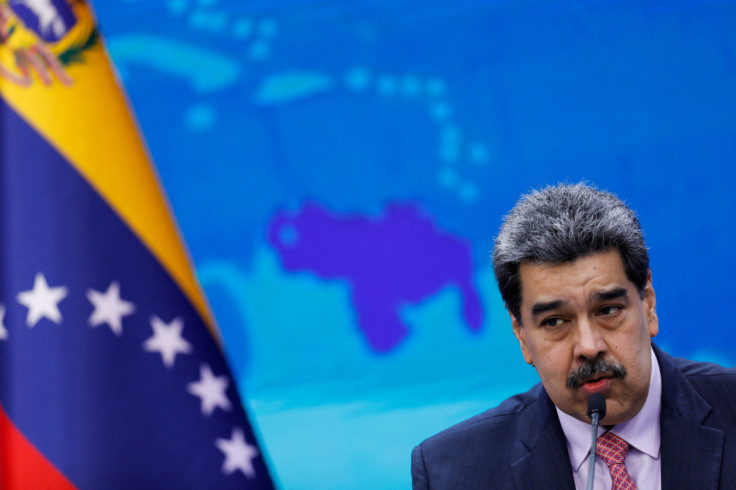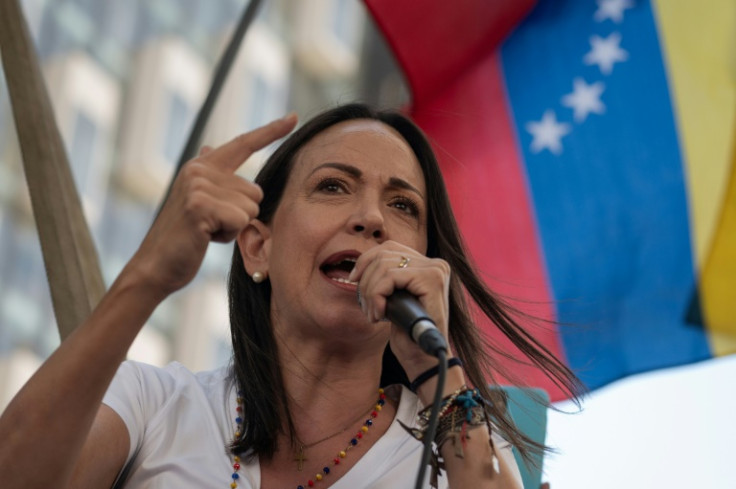
The Nicolás Maduro government in Venezuela has entered 'a reactivation of the most violent form of repression,' warned the United Nations' International Independent Fact-Finding Mission on Venezuela (FFM), which presented its oral update on the country's situation to the organization's Human Rights Council on Wednesday.
The agency warned that the intensification of repressive practices is taking place as the presidential elections scheduled for July approach.
The president of the UN mission, Marta Valiñas, said that the current scenario illustrates "the serious difficulties in ensuring that the upcoming presidential elections proceed in accordance with the right to participate in public affairs as outlined in the International Covenant on Civil and Political Rights."
Valiñas outlined two methods through which repressive practices are taking place in the country. "One involves extreme violence, deployed to silence opposition voices by any means necessary, even resorting to criminal acts. The other fosters an atmosphere of fear and intimidation, curbing the free exercise of fundamental rights," she said.
"The numerous events documented during the period of this update confirm that we are witnessing a resurgence of the most violent form of repression by the authorities," she added.
"The Mission has been observing a repetition of 'the same patterns of human rights violations against opposition individuals or those perceived as such, which includes human rights defenders who dare to criticize, denounce, or protest government decisions or policies."
#Venezuela | Conforme se acercan las elecciones presidenciales, regresa la sombra de la represión violenta, advierte la presidenta de la Misión Independiente de Investigación sobre este país durante una actualización ante el Consejo de Derechos Humanos de la @ONU_es.#HRC55 pic.twitter.com/jynAAT0EVO
— United Nations Human Rights Council | #HRC55 (@UN_HRC) March 20, 2024
Valiñas highlighted that the opposition has been continuously targeted, a salient example being a call to annul the opposition's primaries, in which Vente Venezuela candidate María Corina Machado emerged as the winner by a wide margin amid a high voter turnout.
"On October 23rd, a deputy from a pro-government party called for the annulment of the primary elections, alleging electoral fraud. Two days later, the Attorney General announced a criminal investigation against the National Primary Commission and all its regional boards, including three national leaders (two men and one woman), for various crimes such as usurpation of functions, treason, and association for criminal purposes, and against several regional leaders for similar offenses."
The Mission also recalled the case of Machado, who along other opposition members had been banned from running for public office for years. At the end of November and following a series of negotiations between the government and opposition, the parties agreed on a procedure to judicially review the political disqualification sanctions imposed by the General Comptroller's Office against opposition politicians.
However, the Supreme Court upheld her disqualification in late January. Machado has challenged the decision and vowed to find a way to compete in the elections. However, other members of the opposition have suggested another candidate who hasn't been banned is selected to ensure Maduro faces opposition at the polls.
After 11 years in office marked by sanctions, economic collapse, and accusations of widespread repression and corruption, President Maduro is set to pursue a third term in the July 28 elections.
Within the "Chavista" movement, which has been in power for 25 years and is named after Maduro's popular predecessor Hugo Chavez, there was no internal challenger.

The president has extended invitations to the European Union and a panel of experts from the United Nations to observe the presidential elections.
However, Maduro's government also suspended the activities of the Office of the United Nations High Commissioner for Human Rights (OHCHR) in Caracas in February and ordered its staff to leave within 72 hours.
The Venezuelan Government's actions followed statements from the UN Human Rights Office regarding the arrest of human rights activist Rocío San Miguel in February. She was accused by the government of "terrorism," "conspiracy," and "betrayal of the homeland," alleging her involvement in an alleged plot to assassinate Maduro.
This action coincided with the UN Special Rapporteur on the Right to Food, Michael Fakhri, publicly stating that the Venezuelan regime had prevented him from visiting detention centers and expressing "serious" concern about the food security of prisoners, among other issues.
The UN Mission said that they will continue working independently. They also highlighted that, as a result of repeated reports of human rights violations, the Appeals Chamber of the International Criminal Court (ICC) confirmed in March its authorization for the Prosecutor to resume the investigation into crimes against humanity in Venezuela.
© 2025 Latin Times. All rights reserved. Do not reproduce without permission.





